
Transitions Online_Around the Bloc-18 March
TOL’s regional roundup: stranded EU citizens; Prigozhin vs. Washington; Azerbaijani journalist released; fishy business in Abkhazia; and radioactive plans for Moscow.
More...We kindly inform you that, as long as the subject affiliation of our 300.000+ articles is in progress, you might get unsufficient or no results on your third level or second level search. In this case, please broaden your search criteria.

TOL’s regional roundup: stranded EU citizens; Prigozhin vs. Washington; Azerbaijani journalist released; fishy business in Abkhazia; and radioactive plans for Moscow.
More...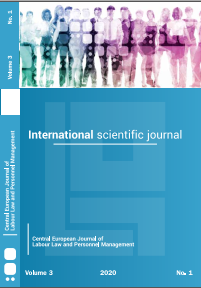
The Human Resource Management is usually the source of sustainable competitiveness in the constantly changing environment and business world. There is no doubt about the impact of the HRM tools and HRM practices on performance. HRM practices can be clustered into the bundles according the model AMO, focusing on the abilities, motivation and opportunities to perform. This paper tests the correlation between the ability-enhancing HRM practices and the determinants of the individual performance. The research was conducted in IT industry in Slovak Republic with the aim to understand the relationships between HRM practices and individual performance. The outcome provides an important message for the HR management in order to influence and manage employee performance with the focus to create competitive advantage of the organization.
More...
The purpose of this article is to present a picture of labour shortages in the V4 countries. Through a sample of regional organizations, the authors outline and analyse the data obtained in two research samples. The paper begins with a general overview of the current situation of four countries in terms of labour shortages and the pattern of labour shortages among countries. By studying two regional samples, the authors outlined what economic sectors and job families have the greatest levels of labour shortage. An analysis follows and details are provided for patterns and activities in four focal countries (the Czech Republic, Hungary, Poland and Slovakia) describing the elements and forces that lead to national workforce deficits and also providing information on the practices organizations are implementing to mitigate this problem. Finally, we summarize the results and draw a series of conclusions.
More...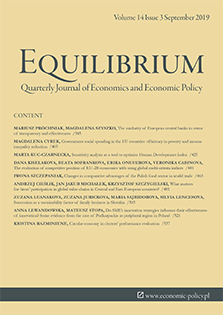
Research background: Income inequality and poverty attract a lot of attention among politicians, activists as well as scientists, who are trying to find a solution to these socio-economic problems. State intervention is commonly expected in this field, however, there is no agreement about the most efficient methods and instruments, as well as about the scale of public expenditure for the purpose of limiting poverty and inequality. Purpose of the article: The aim of the paper is to specify efficiency of government social spending in reducing problems of poverty and income inequality in the EU countries. Moreover, the attention is paid to changes in the efficiency in a period of the 2007 crisis occurrence and its overcoming and to sources of the changes. Methods: To fulfill the main goal of the paper, the DEA method is used, which enables to compare the social efficiency of the EU countries. The Malmquist index is also calculated and decomposed to identify changes in the efficiency and their sources in the crisis period. Data used in the analyses were obtained from Eurostat and OECD databases and cover the period from 2007 to 2016 year. Findings & Value added: The main findings of the paper shed some light on the differences in social efficiency of government spending in the EU countries. Generally, the countries with a higher level of social spending are also those with lower efficiency in inequality reduction, however, the relationship doesn’t appear for poverty alleviation. Thus, the research suggests some substitution between the scale and the efficiency of social spending, at least for the inequality dimension. Moreover, some differences in a social model can be found between the countries of the South and of the North: the countries of the South focus their social policy mainly on inequality reduction, while the Scandinavian countries as well as some other affluent societies direct their public support mainly on poverty alleviation. The research also shows that in the crisis period decreases in efficiency concerned mainly the poverty dimension. It reflects the fact that the poor were the losers of the crisis in favor of the middle classes. The efficiency losses were induced by negative changes in the current usage of public sources, while institutional reforms positively influenced the efficiency.
More...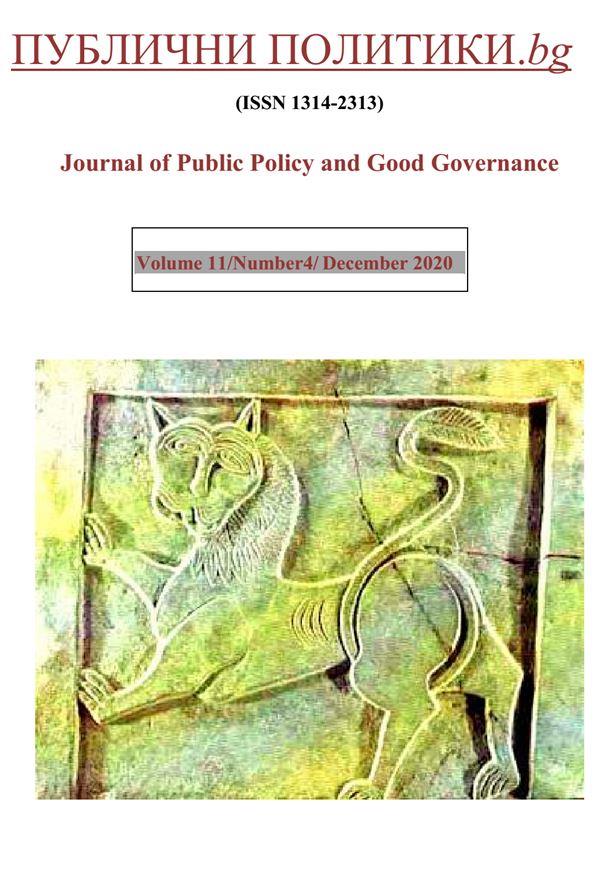
The synthesized review of Kremikovtzi's economic activity during the period of socialism reveals well-known, but also, intentionally or not, forgotten characteristics of the Bulgarian socialist economy. The shortcomings identified in Kremikovtzi are systemic and not so much related to the personal qualities of the people who worked in the individual proceedings. "Kremikovtzi" is a collective image of the economic reality in Bulgaria during the socialism era and indicative of the possibilities and results of the state-implemented industrialization of the country.
More...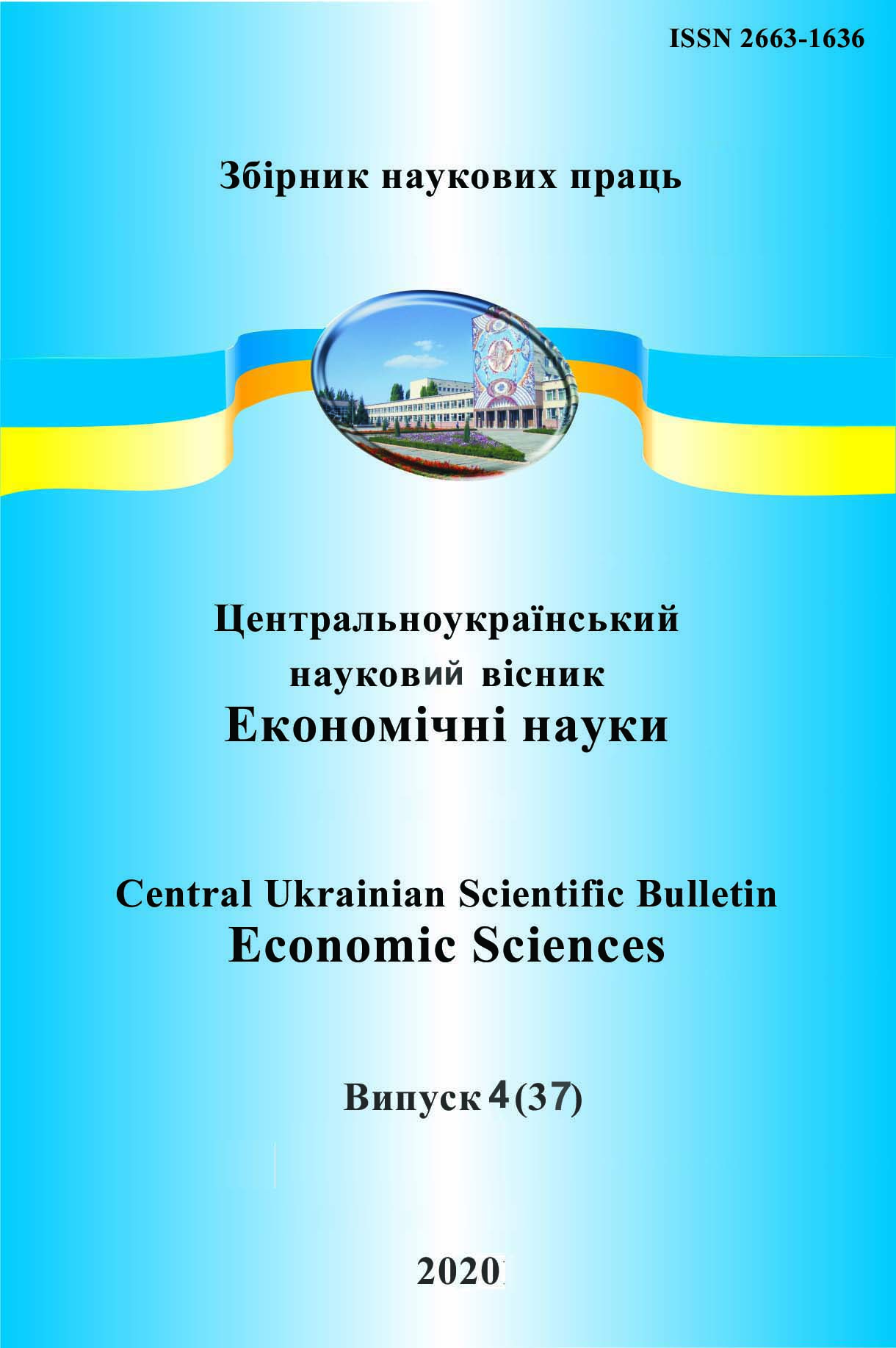
Theoretical and practical approaches to the formation of land market in Ukraine are considered in the article. The views of scientists and practitioners on the problem of creating land market are summarized. It has been proven that land market is vital for agriculture and rural residents. It allows using land as collateral for agricultural enterprises. It is a source of income for farmers and allows land to move to a more efficient owner.It is investigated that during the transformations in the agricultural sector of Ukraine, the state monopoly on land was abolished, agricultural enterprises were privatized, new market structures were created,that is preconditions were created for the introduction of market land turnover and formation of the secondary market of agricultural land. Today it is obvious that further regulation of land relations is needed to ensure effective development of newly created economic agricultural formations. The lack of a real market for agricultural land hinders their efficient distribution and restrains long-term investment in land and agriculture in general.The history of reforming land relations of foreign countries is analyzed and systematized. Peculiarities of land markets formation and organization of lease land relations in the countries of the world are shown. It is studied that the state regulation of the agricultural land market of the EU member states is aimed at preserving land, preventing excessive concentration or fragmentation of land, sale of land primarily to farmers who have experience in agricultural production and live in the area. The issue of the land market is especially acute for countries with economies in transition, including Ukraine. Of particular note is the lease of agricultural land,which is the main form of land relations in many countries. The need to apply positive foreign experience in creating a market for agricultural land in Ukraine is indicated.
More...
The paper is devoted to the problem of research of the organizational and economic factors, which are affecting on the process of the social development of labour potential in Ukraine. The authors, based on the research of the foreign and Ukrainian scientists, determined the necessity to change the approach to the human resource management, caused by the transformations on the labour market and crisis phenomena in the economy. Social development of labour potential should play a key role in this process as a significant factor of ensuring the economic prosperity and social welfare.The main goal of the paper is to reveal the essence and pecularities of the process of social development of labour potential, to analyze the organizational and economic prerequisites for its forming by researching the founder of the indicators of the functioning of the labour market of Ukraine.The author determined that the social development of labour potential is due to the influence of social factors, leading to the forming of new opportunities for population, the growth and expansion of their capabilities, skills, competencies, changes in the qualitative state of their labour potential and the result of their social and labour activities.Using analysis and synthesis, induction and deduction, the methods of comparison and analytics, the main organizational and economic indicators of the development of labour potential of Ukraine are analyzed by the author. In particular, the indicators of fertility and mortality have been analyzed, and the age structure of the population has been determined. Also the characteristic of the domestic labour market, which is characterized by a decreasing in employment in the real sector of the economy, an increasing in unemployment and informal employment, a decreasing in the coverage of employees by the collective agreements, which are negatively impacts on the economic and social development of the state have been given. The indicators of growth of nominal and real wages have been determined, as well as a comparative analysis of wages in Ukraine and the world have been conducted.As a result of the conducted research, the author summarized the problematic issues that hold back the social development of labour potential and require the urgent solutions.
More...
The remittances or money transfers set by migrants to the country of origin are considered to be one of the welfare channels with a potential to influence macroeconomics indicators. The aim of our paper is to analyse migration and remittance behaviour of Ukrainian migrants in the context of the EU. Our study is based on the questionnaire survey inspired by similar projects in Latin America and Mexico. The paper’s main contribution and value-added is in the detailed analysis of the topic that distinguishes different forms of remittances using the statistical summary of the data. According to our findings, the probability and amount remitted are determined by demographic factors and the direction of effects differs in the case of regular and one-time payments. Altruism and business financing come through as the primary motives to remit. Ukrainian remittances appear to be transferred by informal channels into the productive forms of consumption. A procurement of skilled position is positively influenced by human capital factors but is also reflected in the labour market situation in the destination country.
More...
Global risk factors have great impacts on the economies and financial markets. It is observed that the stock markets of countries are affected by globalization especially in times of global crisis. To this end, CDS, VIX and Credit Ratings have started to be examined recently in order to decrease global risk factors. CDS, VIX, and Credit Ratings were determined as global risk indicators and these variables used as independent variables to detect the effect on BRICS-T (Brazil, Russia, India, China, South Africa and Turkey) stock market returns. Daily data set of these variables from 2008 to 2020 were gathered for each country. After preliminary analysis, ARDL model was determined as the best-fitted model for each data set. According to ARDL Bound test approach, except for China, it was detected long-term relationship between variables for the all-remaining (Brazil, Russia, India, South Africa, and Turkey) countries. It means that global risk indicators affect the returns of stock markets in emerging markets.
More...
Pursuing various policies by self-governmental institutions or agencies needs an orderly approach and co-ordination with European and national policies in order to set essential goals for the overall development strategy within the existing legal and organizational framework. When talking actions in this respect, self-governmental agencies should always have in mind the paradigm of the well-balanced economic, social and urban development. The paper introduces examples of core documents prepared at the national and regional levels, whose aim is to indicate the main assumptions for rational development, as well as the paper stresses the level of their cohesion in the context of pursuing the paradigm of sustainable development. The main research objective of the paper is to introduce the essence and scope of national and regional development strategies and to asses advantages and limitations related to their implementation.
More...
Starting from January 1, 2010, self-government budgetary establishments may be created, but the powers of the bodies of local self-government units (units) have been significantly reduced in terms of their creation or transformation. The restrictions are of a subjective and objective nature. The aim of the study is to analyze and evaluate legislation, court decisions and regional accounting chambers, as well as the achievements of the doctrine of the law of local self-government and the law of public finances regarding the scope of the authority of the organs constituting the municipality, with regards to creation, transformation, merger and liquidation of self-government budgetary establishments. The hypothesis was positively verified that the legislator, introducing subjective and objective limitations in the creation of self-government budgetary establishments, left at the same time a wide range of freedom of choice to the authorities between the form of a parabudget economy (local government budget plant) and the form of a fully off-budget economy (municipal company). In this way, it allows the implementation of specific public tasks according to the rules in force in the public finance sector or according to the principles characteristic of the private sector. The paper uses the dogmatic method (as a basic method) and, additionally, the empirical and analytical method (in particular with reference to the jurisprudence of the courts and regional chambers of auditors).
More...
Local government units are an attractive client for each bank. Cooperative banks have also seen it increasingly and more willingly to cooperate. They offer their services to smaller local governments. Local character and responsibility for the development of the region stimulate cooperation on many levels. Through effective co-operation, cooperative banks should become a local center of competence and trust, naturally contributing to the local economic climate. The share of local government units in receivables and liabilities of the cooperative banking sector in comparison with other groups is small, despite a steady increase for several years. However, its stabilization is more important than its growth, providing a lasting relationship between cooperative banks and local governments.
More...
The aim of the article is to present the latest approach to blended learning, also known as hybrid teaching. The first part of the article presents four basic blended learning models such as rotation, flex, a la carte and enriched virtual model. The second part of the article presents the latest research carried out at the Faculty of Management and Economics of Services at the University of Szczecin on the subject of a functioning blended learning model and its assessment by students (The research was conducted among students in January 2018). In addition, some mechanisms occurring in hybrid teaching using a specific e-learning platform were also analyzed. Because blended learning is currently the most popular form of teaching, there is a need for constant monitoring of emerging new solutions that can be used in higher education.
More...
This article presents an overview of the financial literacy of the 15 years old students. The aim of the article is to present conceptualization of financial literacy and the results of own research on the financial literacy of young people in Poland on the background of secondary research. For the purposes of the article, was formulated a thesis: parents play a large role in increasing financial literacy of young people. Data obtained as part of the primary survey was carried out as part of a grant from the Polish-German Foundation for Science “Education and financial literacy in Germany and in Poland. Transfer of knowledge, analysis and recommendations” (No. 2017-03), implemented by the University of Szczecin (project leader), Society for Promotion of Financial Education in Gdynia and social science research institute GP Forschungsgruppe – Institut für Grundlagen und Programmforschung from Berlin. Own Survey they were done in the fourth quarter of 2017 on a nationwide representative sample of 2070 respondents, aged 15. The research was carried out using the PAPI method.
More...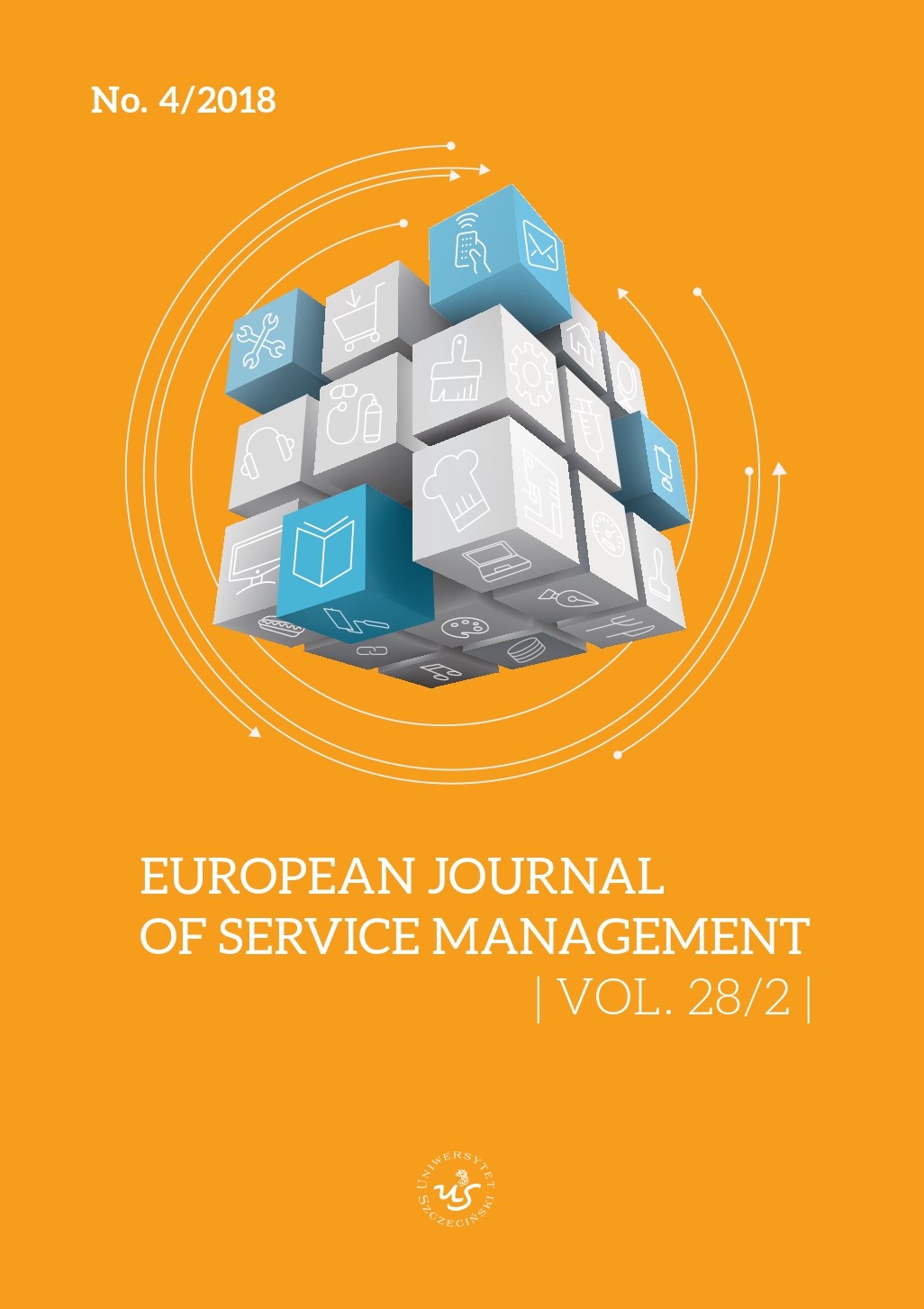
Satisfying social needs with an appropriate level of services is an important element of the quality of life in every settlement (village, urban district, neighbourhood). The neighbourhood services satisfy the basic everyday needs of the residents of a given residential area, which is covered by their range of influence. One of the methods used to assess the social assessment of this type of services is the direct interview. Based on the conducted direct surveys the level and quality of offered neighbourhood services, requiring improvement of them, and missing services in the urban area Żydowce in Szczecin were identified.
More...
This study aims to examine how public governance impacts and affects economic growth in the Gulf Cooperation Council (GCC) which was established on 25th May 1981 and is active till to date, and whether public governance indicators significantly influence the economic growth of these countries. The study’s sample includes the six GCC countries in the period of 1996- 2019. The study model tests the effects of the independent variables of public governance which are the worldwide governance indicators on the dependent variables of economic growth which are the Gross Domestic Product (annual GDP growth in %), GDP per capita growth (annual in %) and GDP current US$) using a multiple regression model (the fixed effect approach). In this study, only four worldwide governance indicators were selected: the control of corruption, government effectiveness, regulatory quality, and the rule of law. Furthermore, this impact was examined using several control variables, including labor force, working capital, oil price, inflation rate, population, and Human Development Index. The data on dependent and independent variables was collected from the World Bank official website. It is found that the control of corruption and the rule of law have a positive, statistically insignificant impact on economic growth, moreover, government effectiveness and regulatory quality have positive, statistically significant impact on economic growth. The control variable’s results concern the labor force, working capital, oil price, inflation rate, population and Human Development Index explained further in the study.
More...
The publication analyzes the advantages of the entry of the Republic of Bulgaria into the ERM 2 currency mechanism and the banking union. The first part indicates the benefits for our country for the banking sector of the Bulgarian economy, respectively for facilitating the payments of companies and citizens. The second part of the publication refers to the advantages for the real sector of the Bulgarian economy, respectively for the Telecommunications sector. In conclusion, some not very significant shortcomings are indicated, which will occur after Bulgaria's accession to the euro area
More...
This study aims to analyze variables that influence access to bank loans by SMEs in Kosovo and North Macedonia. Research methodology is compound by primary and secondary data. We hypothesized that the age of the SMEs, business size, written business plan, collateral type, and business experience before starting as an owner, owner education, and owner gender influence access to bank loans for SMEs. Econometric model results revealed that age of the SMEs, business size, and written business plan has a significant influence on bank loans borrowed by SMEs, while, collateral type, business experience before starting as an owner, owner level of education, and owner gender have no significant influence on bank loans borrowed by SMEs in the Republic of Kosovo. Furthermore, from the results obtained we revealed that age of the SMEs, business size, written business plan, and owners’ level of education has a significant influence on bank loan borrowed by SMEs, whereas, collateral type, business experience before starting as owner and owners gender have no significant influence on bank loans borrowed by SMEs in the Republic of North Macedonia. The findings suggest some future lines of research at the end and provide recommendations for the main stakeholders of this field of study.
More...
Business communications, information and information security are important postulates for the functioning of any state, including Serbia in the international market. Information warfare in the global community includes a specific conglomerate of measures and procedures of aggressive character to extrusion rivals in the world market. International economic espionage is a sophisticated, essential segment of international economic warfare. The protection of information in transitional countries, as well as Serbia, presents the first-class role of human resources training and selection of appropriate security strategies.
More...
The study aims to explore the divergences around the implementation of the Basel III agreement, since this agreement is considered the core of the international regulatory response to the financial crisis, setting the strictest criteria for capital structure and risk assessment. This paper explains the current level of legislation that applies in Kosovo, as well as possible divergences with the criteria set by Basel III. It is argued that the national authority, explicitly the CBK, to decide on the implementation of Basel III, had to agree on three aspects and potentially conflicting between them: the stability of the banking sector, competition, and care for economic growth. Finally, the study concluded that Kosovo is implementing Basel III regulations with greater ease and attention, contributing to banking sector stability, competitiveness, and economic growth.
More...